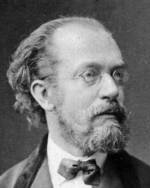
Otto Funke
Encyclopedia

Chemnitz
Chemnitz is the third-largest city of the Free State of Saxony, Germany. Chemnitz is an independent city which is not part of any county and seat of the government region Direktionsbezirk Chemnitz. Located in the northern foothills of the Ore Mountains, it is a part of the Saxon triangle...
. He studied at Leipzig
Leipzig
Leipzig Leipzig has always been a trade city, situated during the time of the Holy Roman Empire at the intersection of the Via Regia and Via Imperii, two important trade routes. At one time, Leipzig was one of the major European centres of learning and culture in fields such as music and publishing...
and Heidelberg
Heidelberg
-Early history:Between 600,000 and 200,000 years ago, "Heidelberg Man" died at nearby Mauer. His jaw bone was discovered in 1907; with scientific dating, his remains were determined to be the earliest evidence of human life in Europe. In the 5th century BC, a Celtic fortress of refuge and place of...
, and in 1852 became a lecturer of physiology at the University of Leipzig
University of Leipzig
The University of Leipzig , located in Leipzig in the Free State of Saxony, Germany, is one of the oldest universities in the world and the second-oldest university in Germany...
. In 1856 he became a professor of physiological chemistry
Physiological chemistry
Physiological chemistry is the chemistry of the organs and tissues of the body and of the various physiological processes incident to life. Physiological chemistry is essentially the precursor to modern biochemistry. In the nineteenth century, physiological chemistry dealt primarily with...
in Leipzig, and in 1860 a professor of physiology and zoology
Zoology
Zoology |zoölogy]]), is the branch of biology that relates to the animal kingdom, including the structure, embryology, evolution, classification, habits, and distribution of all animals, both living and extinct...
at the University of Freiburg
University of Freiburg
The University of Freiburg , sometimes referred to in English as the Albert Ludwig University of Freiburg, is a public research university located in Freiburg im Breisgau, Baden-Württemberg, Germany.The university was founded in 1457 by the Habsburg dynasty as the...
. One of his better known students at Leipzig was physiologist Karl Ewald Konstantin Hering
Ewald Hering
Karl Ewald Konstantin Hering was a German physiologist who did much research into color vision and spatial perception...
(1834-1918).
In 1851 Otto Funke was the first scientist to successfully crystallize hemoglobin
Hemoglobin
Hemoglobin is the iron-containing oxygen-transport metalloprotein in the red blood cells of all vertebrates, with the exception of the fish family Channichthyidae, as well as the tissues of some invertebrates...
(: "Hämoglobinkrystallen"), which he first called "Blutfarbstoffes". This work was a precursor to Felix Hoppe-Seyler's important studies of hemoglobin. Funke also performed research of blood formation in the spleen
Spleen
The spleen is an organ found in virtually all vertebrate animals with important roles in regard to red blood cells and the immune system. In humans, it is located in the left upper quadrant of the abdomen. It removes old red blood cells and holds a reserve of blood in case of hemorrhagic shock...
, and investigations into the effects of curare
Curare
Curare is a common name for various arrow poisons originating from South America. The three main types of curare are:* tubocurare...
.
Selected publications
- Lehrbuch der Physiologie (7. Aufl. von Grünhagen, Hamburg 1884)
- Atlas der physiologischen Chemie (Leipzig 1853, 2. Aufl. 1858), Supplement to Carl Lehmann's Lehrbuch der physiologischen Chemie
- Kapitel über den Tastsinn und die Gemeingefühle. In: Ludimar HermannLudimar HermannLudimar Hermann was a German physiologist and speech scientist who used the Edison phonograph to test theories of vowel production, particularly those of Robert Willis and Charles Wheatstone. He coined the word formant, a term of importance in modern acoustic phonetics...
's Handbuch der Physiologie (Bd. 3, Leipzig 1880)

